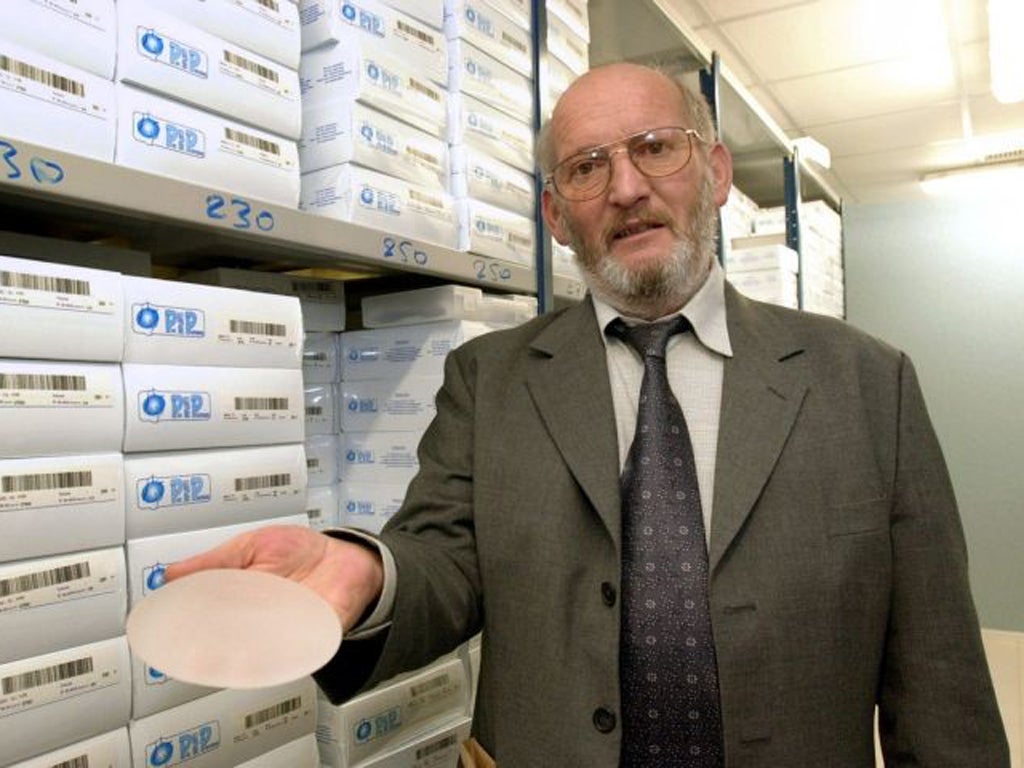Clinics told to pay for removal of substandard breast implants
Health Secretary says NHS will help women and private sector has a 'moral duty' to do the same

Private clinics were ordered yesterday to pay for the removal of sub-standard breast implants from women worried about the risk of their rupturing.
Health Secretary Andrew Lansley said a review of risks from French-made implants, inserted in some 40,000 UK women, had concluded there was no reason to routinely remove them. But as implants had non-medical silcone and should not have been inserted, some women would want rid of them.
In that case, where implants were inserted on the NHS, the NHS would pay for replacement. He said private clinics had a "moral duty" to offer the same service to patients who requested it with no charge, but this would only cover removal of defective implants.
France banned the implants, made by French firm Poly Implant Prothèse (PIP), in 2010 and said last week it would pay for an estimated 30,000 women to have them removed. Yesterday Germany and the Czech Republic followed France's lead. The owner of Poly Implant Prothèse, Jean-Claude Mas, told police he had no regrets about selling cheap, sub-standard implants and said women who had sued his firm were either "fragile" or "money grabbing".
According to transcripts of a police interview last October, he said he had "nothing to say" to the 300,000 women round the world who have received the implants. He admitted he used a cheap form of industrial grade silicone gel in the implants for 13 years, evading safety inspectors by getting employees to hide it when inspections took place.
But he said the gel posed no health threat. PIP implants sold for £50-£90 compared with up to £400 for rival brands. The UK government said tests had shown no risk of dangerous toxins leaking into the body if a PIP implant ruptured. But the manufacturer could have changed the silicone making it impossible to rule out a possibility that some were toxic. The review, led by Sir Bruce Keogh, NHS medical director, had been unable to establish if the rupture rate for the PIP implants was higher than for other brands.
Earlier the government said risk of rupture was low based on incomplete data held by the Medicines and Healthcare Regulatory Agency, which suggested a rate of 1 per cent. Later data from one private chain of clinics indicated the rate could be 7 per cent.
Mr Lansley said: "The data available to the experts has not been good enough to enable them to give a clear recommendation of the risk posed by PIP implants. We will therefore support women, including removal of the implant, if needed."
Plastic surgeons said industrial grade silicone gel was unfit for human use and any rupture rate was unacceptable, rendering removal the only option.
Subscribe to Independent Premium to bookmark this article
Want to bookmark your favourite articles and stories to read or reference later? Start your Independent Premium subscription today.

Join our commenting forum
Join thought-provoking conversations, follow other Independent readers and see their replies